#azar nafisi
Text



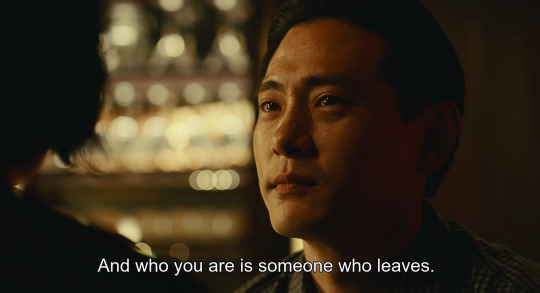
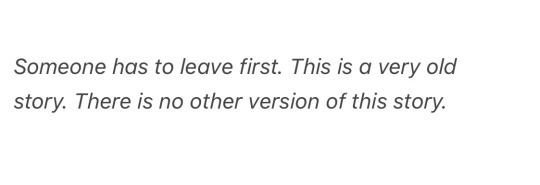


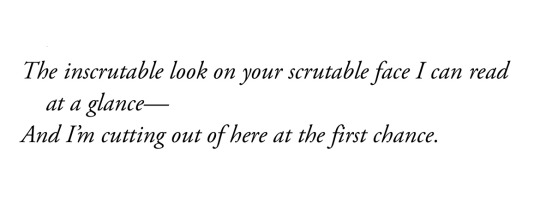


@serethereal || normal people (dir. lenny abrahamson, 2020) || noah kahan, paul revere || past lives (dir. celine song, 2023) || richard siken, war of the foxes || azar nafisi, reading lolita in tehran || call me by your name (dir. luca guadagnino, 2018) || thomas mcgrath, gone away blues || moonlight (dir. barry jenkins, 2016) || noah kahan, you’re gonna go far
#web weaving#leaving#im the leaver#moonlight#moonlight 2016#normal people#Marianne#connell waldron#call me by your name#cmbyn#luca guadagnino#richard siken#azar nafisi#azar nafisi; reading lolita in tehran#noah kahan#paul revere#gonna go far
240 notes
·
View notes
Quote
You get a strange feeling when you're about to leave a place. Like you'll not only miss the people you love but you'll miss the person you are now at this time and this place because you'll never be this way ever again.
Azar Nafisi
#Azar Nafisi#motivation#quotes#poetry#literature#relationship quotes#writing#original#words#love#relationship#thoughts#lit#prose#spilled ink#inspiring quotes#life quotes#quoteoftheday#love quotes#poem#aesthetic
478 notes
·
View notes
Text
“You get a strange feeling when you're about to leave a place, I told him, like you'll not only miss the people you love but you'll miss the person you are now at this time and this place because you'll never be this way ever again.”
― Azar Nafisi, Reading Lolita in Tehran: A Memoir in Books
#Azar Nafisi#Reading Lolita in Tehran#A Memoir in Books#dark academia#dark academia aesthetic#light academia#light acadamia aesthetic#chaotic academia#chaotic academia aesthetic#classic academia#classic literature#poetry#art academia#art#books#libraries#book quotes#literature quotes#deep quotes#life quotes#relatable quotes#bookblr#poetry quotes
944 notes
·
View notes
Quote
You get a strange feeling when you’re about to leave a place. Like you’ll not only miss the people you love but you’ll miss the person you are now at this time and this place because you’ll never be this way ever again.
Azar Nafisi
1K notes
·
View notes
Quote
You get a strange feeling when you're about to leave a place. Like you'll not only miss the people you love but you'll miss the person you are now at this time and this place because you'll never be this way ever again.
Azar Nafisi
#Azar Nafisi#motivation#quotes#poetry#literature#relationship quotes#writing#original#words#love#relationship#thoughts#lit#prose#spilled ink#inspiring quotes#life quotes#quoteoftheday#love quotes#poem#aesthetic
148 notes
·
View notes
Quote
You get a strange feeling when you're about to leave a place. Like you'll not only miss the people you love but you'll miss the person you are now at this time and this place because you'll never be this way ever again.
Azar Nafisi
#Azar Nafisi#motivation#quotes#poetry#literature#relationship quotes#writing#original#words#love#relationship#thoughts#lit#prose#spilled ink#inspiring quotes#life quotes#quoteoftheday#love quotes#poem#aesthetic
503 notes
·
View notes
Text
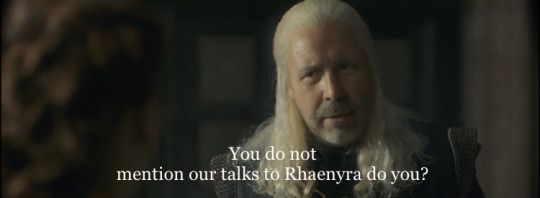







Grown men preying on young women:
‘If I was some paint did I splatter on a promising grown man? If I was a child did it matter that you got to wash your hands?’ - Taylor Swift, Would’ve Could’ve Should’ve
Alicent Hightower and Viserys Targaryen, House of the Dragon // Angela Carter, The Bloody Chamber // Sansa Stark and Petyr Baelish, Game of Thrones // Azar Nafisi, Reading Lolita in Tehran.
Inspired by this post.
#reupload#the last one was hard to read#the sexualisation of young girls by men trying to relive their youth is fucking disgusting#web weaving#mine#alicent hightower#viserys targaryen#sansa stark#petyr baelish#house of the dragon#game of thrones#reading lolita in tehran#Lolita#azar nafisi#angela carter#the bloody chamber#girlhood#womanhood#objectification#the male gaze
336 notes
·
View notes
Quote
You get a strange feeling when you're about to leave a place. Like you'll not only miss the people you love but you'll miss the person you are now at this time and this place because you'll never be this way ever again.
Azar Nafisi
#Azar Nafisi#motivation#quotes#poetry#literature#relationship quotes#writing#original#words#love#relationship#thoughts#lit#prose#spilled ink#inspiring quotes#life quotes#quoteoftheday#love quotes#poem#aesthetic
102 notes
·
View notes
Text
It's early in the morning. It's my habit to send a message to my friend, a writer, each day. Most of these messages are trivial nonsense. This morning, however, I am thinking about Azar Nafisi's brilliant book Read Dangerously. I realize that in order for people to be able to read dangerously, someone needs to write dangerously. The message today is short, but on this rare occasion it is not trivial.
Write dangerously.
22 notes
·
View notes
Quote
You get a strange feeling when you're about to leave a place. Like you'll not only miss the people you love but you'll miss the person you are now at this time and this place because you'll never be this way ever again.
Azar Nafisi
#Azar Nafisi#motivation#quotes#poetry#literature#relationship quotes#writing#original#words#love#relationship#thoughts#lit#prose#spilled ink#inspiring quotes#life quotes#quoteoftheday#love quotes#poem#aesthetic
231 notes
·
View notes
Text
" Feroza Aziz, nel novembre 2015, era una bella diciassettenne americana di origine afghana, molto nota per i suoi interventi su TikTok; video generalmente frivoli, di cosmesi o di moda. I censori cinesi, scorrendo rapidamente i contributi postati quel giorno e vedendola impegnata in un tutorial in cui illustrava il corretto uso di un piegaciglia, non si sono soffermati né preoccupati; non potevano sospettare che dopo pochi secondi dall'inizio il tutorial avrebbe cambiato decisamente registro e si sarebbe trasformato in una dura denuncia della repressione cinese nei confronti dell'etnia uigura, mentre Feroza con la sua faccetta di bronzo continuava imperterrita a piegarsi le ciglia, passando dall'occhio destro al sinistro. Appena mi è capitato di vedere il video (diventato nel frattempo virale) l’ho collegato a una tecnica usata nella settecentesca Encyclopédie diretta da Diderot, di cui molto probabilmente Feroza Aziz non aveva mai sentito parlare:
per depistare anche allora la censura, gli enciclopedisti si erano inventati di nascondere alcuni degli attacchi più decisi ai pilastri culturali dell'ancien régime dentro la definizione di lemmi dall'apparenza assolutamente innocua. Se per esempio si va a leggere il testo relativo alla voce “aquila”, si troveranno due pagine di lunghe e dettagliate informazioni ornitologiche ma verso il fondo (dove il censore stanco e poco interessato non sarebbe arrivato mai) si parla dell'aquila come uccello sacro a Giove e si condannano i miti superstiziosi pagani, con trasparente allusione a quelli cristiani.
Le tecniche dell'illuminismo francese sono state esportate, più o meno consapevolmente, ovunque gli autori cerchino di esprimere pulsioni di libertà in un regime totalitario; il modello della Religiosa di Diderot (la storia di Suzanne Simonin, monaca forzata, e della sua fuga dal convento) si ritrova per esempio nella miniserie tedesco-statunitense Unorthodox (2020), ispirata all'autobiografia di Deborah Feldman: una ragazza cresciuta nella comunità ebrea ultraortodossa di Brooklyn fugge a Berlino, dove prima di lei era fuggita sua madre – la storia esemplare di una giovane donna per denunciare un intero sistema di oppressione. Così Azar Nafisi, in Leggere Lolita a Teheran, usa Nabokov e in generale la letteratura per raccontare la repressione del femminile dopo la vittoria di Khomeini, e Abbas Kiarostami sposta sullo sguardo dei bambini (nello splendido documentario Compiti a casa) il proprio atto d’accusa verso l’Iran contemporaneo: struggente la scena in cui uno dei piccoli trasferisce su Pinocchio la personale, e fino a quel momento mai compresa, voglia di libertà. Lo “spostamento”, proprio nel senso freudiano, era una delle tecniche principali dell'illuminismo, basti pensare al persiano di Montesquieu che descrive Parigi con occhi ingenui nelle sue lettere a un amico rimasto in Persia. Spostamento nello spazio ma anche nel tempo: Stalin concesse un premio statale a Ejzenštejn per la storia cinquecentesca di Ivan il Terribile ma, quando si accorse che nel secondo film della trilogia (La congiura dei boiardi) il potere autocratico veniva messo in discussione, negò l’autorizzazione a proseguirlo. Nel quindicesimo capitolo dello Spirito delle leggi Montesquieu stila un elenco paradossale delle nove ragioni per cui si ha il diritto di rendere schiavi i neri, con perle del tipo: “visto che i popoli europei hanno sterminato i popoli americani, hanno dovuto rendere schiavi quelli dell'Africa per riuscire a dissodare tutte quelle terre”, o anche “lo zucchero sarebbe troppo caro, se la pianta che lo produce non fosse coltivata da schiavi”, o infine “è impossibile supporre che i negri siano uomini come noi perché, se lo supponessimo, si comincerebbe a credere che noi stessi non siamo cristiani”. Il rovesciamento paradossale, cioè fingersi nei panni del razzista che si vuole combattere esagerando fino all'assurdo le sue motivazioni, è un caso particolare di spostamento ed è stato artificio retorico costante nelle lotte verbali per la tolleranza e la libertà; strumento efficace ma delicato e talvolta pericoloso, se è vero che durante un’assemblea in Giamaica nel 1802 una parte di questo elenco di Montesquieu fu strumentalizzata, citando l’autorità della fonte, per rifiutare ai mulatti gli stessi diritti dei bianchi. "
Walter Siti, Contro l’impegno. Riflessioni sul Bene in letteratura, Rizzoli (collana Narrativa italiana), 2021. [Libro elettronico]
#Walter Siti#citazioni#letture#leggere#intellettuali italiani contemporanei#critica letteraria#saggistica#censura#Encyclopédie#ancien régime#Denis Diderot#enciclopedisti#illuminismo#ebrei ultraortodossi#New York City#Brooklyn#Azar Nafisi#Leggere Lolita a Teheran#Iran#Vladimir Nabokov#Abbas Kiarostami#Ruhollah Khomeyni#cinema iraniano#Persia#Pinocchio#Montesquieu#Stalin#Sergej Michajlovic Ejzenštejn#Ivan il Terribile#schiavismo
7 notes
·
View notes
Text




life in july
#booklr#books#book photography#elena ferrante#my brilliant friend#a amiga genial#books and plants#people#books and readers#reading lolita in tehran#lendo lolita em teerã#azar nafisi#heartstopper#comics#alice oseman#books and sunlight#books and flowers#it's a me!#the refuge of books
140 notes
·
View notes
Text
These students, like the rest of their generation, were different from mine in one fundamental aspect. My generation complained of a loss, the void in our lives that was created when our past was stolen from us, making us exiles in our own country. Yet we had a past to compare with the present; we had memories and images of what had been taken away. But my girls spoke constantly of stolen kisses, films they had never seen and the wind they had never felt on their skin. This generation had no past. Their memory was of a half-articulated desire, something they had never had. It was this lack, their sense of longing for the ordinary, taken-for-granted aspects of life, that gave their words a certain luminous quality akin to poetry. I wonder if right now, at this moment, I were to turn to the people sitting next to me in this café in a country that is not Iran and talk to them about life in Tehran, how they would react. Would they condemn the tortures, the executions and the extreme acts of aggression? I think they would. But what about the acts of transgression on our ordinary lives, like the desire to wear pink socks?
~ Reading Lolita in Tehran, a memoir in books, by Azar Nafisi
9 notes
·
View notes
Text
i know i said i was just gonna get a haircut but i brought home another find from the secondhand bookstore
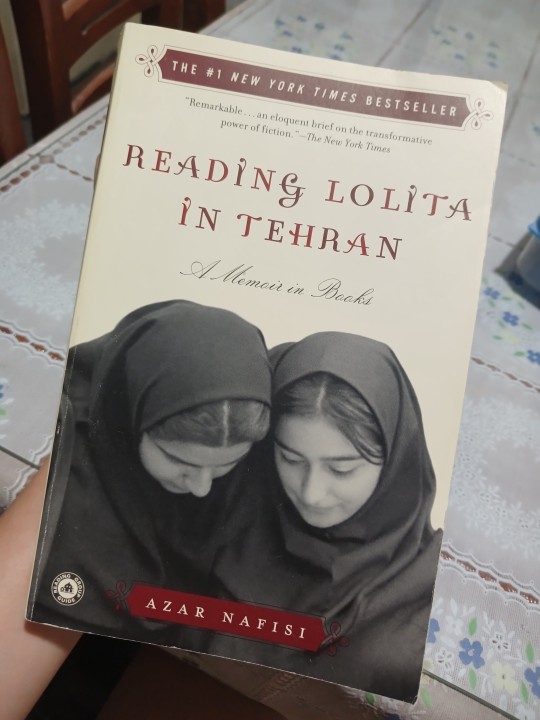
looked really interesting; will be reading this alongside tbk and kots (my hyperactive brain needs lots of stimulation rn)
3 notes
·
View notes
Text

You get a strange feeling when you’re about to leave a place. Like you’ll not only miss the people you love but you’ll miss the person you are now at this time and this place because you’ll never be this way ever again.
– Azar Nafisi
37 notes
·
View notes
Photo

(via Reading Lolita in Tehran by Azar Nafisi)
The author, Azar Nafisi, and several of her girl students who formed the clandestine book discussion group to explore some of the forbidden classics in the Revolutionary Islamic Iran were relating themselves to Lolita where there was a Humbert in their lives in one form or another, restricting the freedom of their lives in some way and taking control over them in a manner that was loathed by them all.
The Humbert could take any form, from the uncle of one of the girls who tried to molest her in her childhood to the ‘Philosopher-King’ Ayatollah himself who, according to the author, endeavoured to build his dream kingdom by imposing the most stringent regulations and restricting the freedom of the subjects, particularly women. In a country ravaged by the so-called revolution and warfare with the neighbouring country, the sole means these women could find to live the lives of their dreams was to turn to fiction, because they believed that their lives of freedom could exist only in their minds, in the realm of imagination.
This book Reading Lolita in Tehran endeavours to speak to us about the power of imagination and fiction. As the group of women crazy for fiction delves into the fictional classics by Nabokov, Fitzgerald, Austen, and James, we realize how their true lives are intertwined with the narratives they discuss. The book is part memoir and part literary crit...
(Read full text on booksperience.org)
#books#reading#ayatollah#azar nafisi#book club#book discussion#criticism#fiction#f. scott fitzgerald#henry james#humbert#iranian literature#islamic culture#islamic republic of iran#jane austen#khomeini#literary#lolita#memoir#vladimir nabokov#non-fiction#persia#persian literature#reading lolita in tehran#tehran#women#booksperience
1 note
·
View note